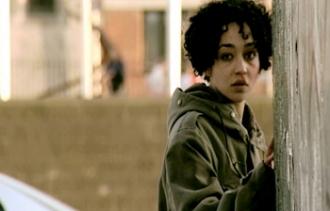Human trafficking a crime 'hidden in plain sight'

A Dublin Film Festival marked EU Anti-Trafficking Day with two films and a discussion at Liberty Hall Theatre yesterday evening. By Alison Spillane.
Speaking at the film presentation was Nick Kinsella, head of the UK Human Trafficking Centre (UKHTU). He said that human trafficking is an international phenomenon but "very much a local crime". He highlighted the need for co-operation between the various agencies involved in combating trafficking, adding that that co-operation was needed at both domestic and international levels.
Mr Kinsella spoke as part of a panel discussion on human trafficking at the evening session of the festival which also involved a screening of Irish film Trafficked, released earlier this year. Other panellists included Sarah Benson of the Irish NGO Ruhama, Chief Superintendent John O'Driscoll of the Garda National Immigration Bureau (GNIB), film director Ciaran O'Connor and Marian Walsh of the Anti-Human Trafficking Unit (AHTU) in the Department of Justice & Law Reform. The event was organised by the AHTU to mark EU Anti-Trafficking Day.
The panel highlighted four elements crucial in tackling human trafficking – prevention, protection, prosecution and partnership. Speaking about the United Kingdom in particular, Mr Kinsella said an estimated 2,600 people are victims of trafficking in the UK at any one time. Victims are found across the UK, he said, not just in main cities. Kinsella also said there is a misconception amongst the public that victims of trafficking are always foreign nationals – around 5% of victims in the UK are UK nationals.
Chief Supt O'Driscoll said that achieving prosecution in trafficking cases is difficult because it is "a very complicated form of criminality to deal with". He highlighted the international dimension to the crime saying it can be difficult to verify information. Language barriers also present a problem, and some victims exhibit fear of both the police and state agencies, perhaps due to experiences in their home countries.
Sometimes, he said, traffickers are prosecuted on lesser charges such as forging documents. He added that the main focus of the GNIB is on removing victims from damaging and dangerous circumstances.
In terms of international co-operation, Chief Supt O'Driscoll said that effort was being made at an international level to target trafficking gangs. He said that An Garda Síochána have links with both Europol and Interpol.
Sarah Benson spoke about the work Ruhama does in aiding women affected by prostitution. She said that although the organisation has been working in this area for over 20 years, they did not encounter their first victim of trafficking until 2000. Since then the numbers have increased steadily. Of the 196 women Ruhama worked with last year, 66 were victims of trafficking.
According to Ruhama's Annual Statistics for 2009, the largest number of migrant women involved in the Irish sex trade come from Nigeria and Romania. In light of this, the organisation has forged links with the Romanian embassy in Dublin. Chief Supt O'Driscoll added that there is a full-time Romanian police officer in Dublin to assist the Gardaí.
With regard to Nigeria both Benson and O'Driscoll said that working with local authorities was more difficult due to the scale of trafficking; 20,000 women and children are trafficked to the border countries of Nigeria alone each year.
Speaking on behalf of the AHTU, Marian Walsh highlighted the measures taken by the Department of Justice to combat trafficking. She said the AHTU provides training to government and Public Sector staff as well as the Garda Síochána. She also highlighted various Garda operations and international co-operation in terms of extradition arrangements.
With regard to legislative developments, Ms Walsh alluded to the Criminal Law (Human Trafficking) Act 2008 which creates offences of trafficking in adults or children for the purpose of their sexual or labour exploitation, or the removal of organs. She also highlighted the Immigration, Residency and Protection Bill which provides for a period of recovery and reflection of 60 days in the State for alleged victims of trafficking.
Recently however, NGO Ruhama has criticised the Immigration, Residency and Protection Bill on the grounds that it only grants protection to victims of trafficking provided they co-operate with the criminal investigation. It argues that this conditional clause means the victims find themselves coerced into a situation which further traumatises them and obstructs their recovery from the horrendous abuse they are escaping.
For further information on human trafficking:
http://www.blueblindfold.gov.ie/
http://www.soca.gov.uk/about-soca/about-the-ukhtc
The film was preceded by a screening of the music video My Dangerous Loverboy directed by Virginia Heath and backed by the UKHTC.
